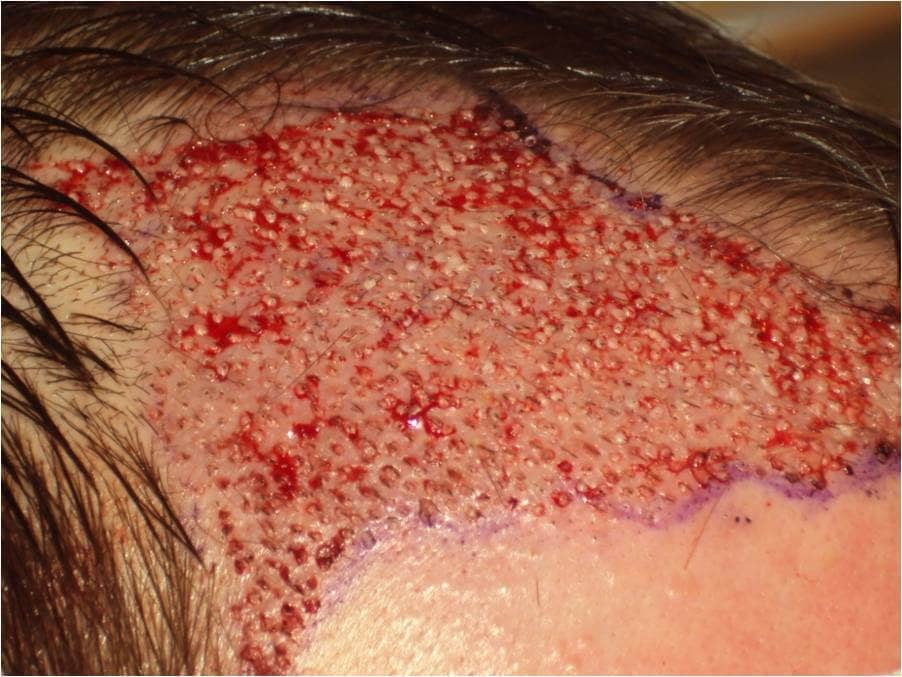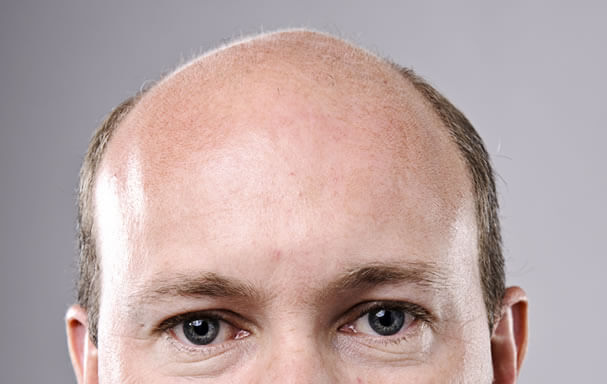Most Suitable Option for Hair Transplant
October 10, 2015

Swelling on the forehead is a common and pretty normal side effect of a hair transplant. It usually starts on the 2nd or 3rd day and under the action of gravity, moves down to the eyes and nose area before subsiding within 3 to 5 days. Swelling mostly reduces within a week, but if it persists for more than a week, discuss it with your doctor as it can lead to complications. You can significantly minimize the chances of swelling by following a few simple tips.
Here are steps to prevent forehead swelling after hair transplant:
The first and foremost thing that you have to do to minimize the chances of swelling is to keep your head elevated at an angle of 45 degrees at least, even while you sleep. For the first few nights sleep in a reclining chair or use several pillows to elevate your head. This not only reduces swelling but also minimizes the chances of developing infection and damage to the transplanted follicles.
There are certain medicines that help reduce swelling and your surgeon may prescribe you one following a hair transplant. Some anti-inflammatory drugs also help reduce swelling but you should use only those prescribed by the doctor and according to the prescription. A very low dosage of certain steroids also helps in reducing forehead swelling. Discuss with your doctor if steroid injections will be of any help for you.
Cold compressions also offer relief from swelling symptoms. Cold compressions work by decreasing blood flow to the problem areas by constricting the tiny blood vessels. Use cold compressions after surgery, but be very gentle, as applying any undue pressure can dislodge freshly transplanted follicles. Also, don’t apply too much cold as it may affect the growth of transplanted follicles. Cold compressions also help control post-surgical bleeding.
You may be allowed to resume routine activities after 3 to 4 days post-transplant, but avoid indulging in any strenuous physical activity as it can increase swelling. It may also result in bursting of swelling, which can ultimately cause blood clots. Besides that, vigorous physical activities will cause you to sweat, and sweating can hinder the healing process by increasing the chances of infection.
Blood-thinning drugs such as aspirin, ibuprofen, and their derivatives should be avoided for at least a week after hair transplant as these drugs can increase blood flow to the scalp, elevating swelling.
To know more about post-transplant care and tips to prevent forehead swelling, book a FREE CONSULTATION now and let our experts guide you.
Dr. Cagatay Sezgin is a celebrity hair transplant surgeon with over 20 years of experience in hair transplantation and restoration. He is the First Turkish Board Surgeon to become a member of the International Society of Hair Restoration Surgery (ISHRS) and the Asian Association of Hair Transplant Surgeons (AAHRS). Moreover, he has the honor of becoming the first hair transplant surgeon in the world to perform hair, eyebrow, and beard transplantation all in one case and that too in a single session.

October 10, 2015

July 24, 2015

July 26, 2018